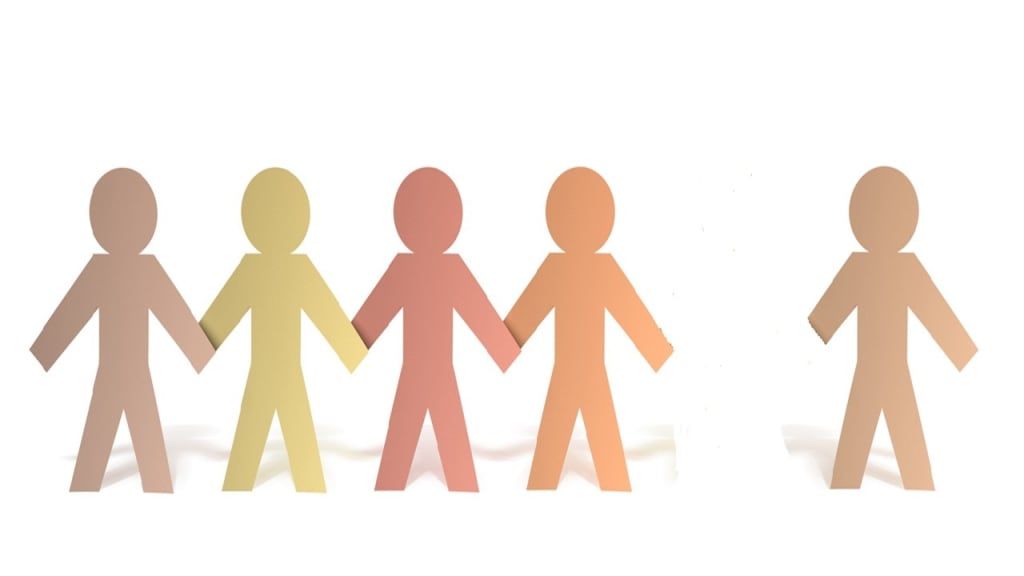Should We Provide Emergency Universal Basic Income to Everyone or Just Those Who Need It?

The question of means-testing versus full universality in a time of crisis
What’s happened in just the past few days with mind-boggling speed is the near certainty now that in the very near future, the United States is going to start cutting checks for some as yet undefined value and sending them to an as yet undefined population. As an advocate for a universal basic income since 2013, I applaud this growing "cash bailout of the people" consensus, however I would like to emphasize that what matters most right now as with UBI in general, is the unconditionality/universality of the payment. In other words, the checks really need to go to everyone, excluding no one, and where that may seem wasteful or unnecessary, let me explain why it should be part of any bill that gets enacted into law for emergency UBI or permanent UBI.
There are three main reasons why money should go to everyone: immediacy, error reduction, and social cohesion. People need the checks as fast as possible. Everyone who needs the checks should get the checks. And the distribution of the checks should leave citizens with the feeling that government can actually work. With those three criteria met, Americans may finally come to understand why this nation should have adopted UBI decades ago, if not centuries ago.
First, the most important justification for full universality in this moment is all about time. The clock is ticking. We are in the midst of a global pandemic. People are being asked to stay inside to flatten the curve so as to prevent our healthcare system from being overwhelmed. This is the right thing to do to save lives, but the results are financially devastating as consumers in a 70% consumer economy dramatically reduce their consumption. People are already losing their jobs left and right. Businesses are closing. The self-employed are seeing their incomes vanish. The first of the month is less than two weeks away. Our primary goal should be getting money into the hands of people who desperately need it as fast as we possibly can, especially so everyone who is sick can self-quarantine. That means selecting a flat amount of money and sending it to everyone.
The common response to this is, “Everyone? But rich people don’t need it.” That sounds entirely logical, but in practice, here’s what happens. First, we need to argue over what “rich” means. What’s that number? Is it $100,000? Is it $1 million? Is it somewhere in between? Let’s say we arbitrarily decide it’s $100,000 so that’s where we draw the line. Now that the line has been drawn, we now have to test every single person in the country to determine which side of the line they’re on. Besides needing to now argue over how best to do that, we then need to spend the time and the resources actually doing it. We also then need to punish people for lying in order to qualify for the check. That means more time and resources expended downstream too.
The fastest possible way to get money to people is to decide on a number and just send them to everyone without any means-test. This strategy would save weeks and billions of dollars. Most importantly, it would literally save lives.
The second most important reason for full universality is the need to eliminate errors of exclusion. Basically whenever we draw a line to divide people into the “deserving” and “undeserving,” we introduce two types of errors. The first type of error is a false positive. It’s when someone passes the test when they shouldn’t have. The second type of error is a false negative. It’s when someone fails the test who should have passed. In regards to the line we draw, here’s what those errors mean in human terms. One person will get a check who didn’t really need it. Another person will not get a check who desperately needed it. The former could be seen as unnecessary while the latter could be fatal. People could die. These mistakes happen all the time all over the world.
A study of targeted programs in 30 countries actually found a shockingly high average error rate. If your goal was to get food to the malnourished, do you think that targeting assistance to those in the bottom 40% would mean you’d reach most of the malnourished? You might think so, but according to the study, you’d be missing a whopping 50% of them. Another study of 38 programs in 23 countries found that poverty targeting excludes 44% to 97% of the people the programs are intended to reach. That’s how easy it is to draw a line and leave out most of the people you want to help.
Think of it this way. Right now, we’re all trapped in a room we can’t escape and the water is rising. We have no idea who will drown and can only guess. It therefore only makes sense to make sure everyone gets a life vest. Who cares if a good swimmer gets one they don’t need as a result of making sure no one drowns? If it’s possible to save people from drowning who otherwise would, that should be our top priority.
Additionally, once the danger has passed, there’s nothing preventing us from asking a good swimmer for their life vest back. We already have a system in place to do that. Next year come tax time, just tax them more. That’s a means-test on the back end that takes no additional time or resources because everyone already pays taxes every year anyway.
Have you heard the phrase, “Kill ‘em all and let God sort ‘em out?” Well this is kind of the opposite approach with the goal of saving both lives and time. “Pay ‘em all and let taxes sort ‘em out.”
Finally, the reason full universality is so important even goes beyond expediency and including everyone in need. It's also about our constitutional goal of “a more perfect Union.” What policymakers don't realize is that the lines they insist on drawing erodes trust in the institution of government itself. This is not a small effect either. It's quite large actually. A cleverly designed experiment out of Pakistan found that feeling poor, no matter your actual income, can lead to a very large decrease in government support among those who don't get help.
The effect is so large that when we draw a line between the "deserving" and "undeserving," those who get help gain a 0.6 percentage point increase in government satisfaction while among those who don't get help, their approval with government plummets by 10.5 percentage points. That means that in a situation like this, where a pandemic is ravaging our lives and our economy, when our goal is to help people in need, and we choose to draw a line to exclude people, we actually serve to massively erode people's faith in government because the negative impact of not getting help can be 17.5 times stronger than the positive impact.
Full universality means we avoid any large decreases in government satisfaction and instead see positive increases across the board. Instead of some people being happy and some people being extremely unhappy, everyone is happy. That satisfaction can then make other things more possible. For example, maybe the reason we don’t already have universal healthcare is because our long-term insistence on means-testing over universality has resulted in some people being extremely pissed off with government to the point they think government can’t do anything right.
The lesson here should be simple. Don’t exclude anyone, especially not in an emergency where time is of the essence and when errors of exclusion can be fatal.
Our 7th President, Andrew Jackson, once said, “There are no necessary evils in government. Its evils exist only in its abuses. If it would confine itself to equal protection, and, as Heaven does its rains, shower its favors alike on the high and the low, the rich and the poor, it would be an unqualified blessing.”
Every member of Congress needs to understand that any insistence that emergency UBI must be targeted is going to greatly delay life-saving money, exclude people who do in fact need it, and damage the way citizens view the institution of government among those excluded.
Our entire economy is on fire. What we need is not weeks of finding the right number of fire trucks and which neighborhoods to send them to.
What we need is to make it rain.
Special thanks to: The Gerald Huff Fund for Humanity, Haroon Mokhtarzada, Steven Grimm, Floyd Marinescu, Andrew Stern, Zack Sargent, Chris Ray, Larry Cohen, Jeff Lu, Ace Bailey, Albert Wenger, Athena Washington, Daragh Ward, Dylan J Hirsch-Shell, Joanna Zarach, John Hamilton, Justin Walsh, Laurel Gillespie, Mark Hechim, Michael Tinker, Myles McLane, Peter, Robert Collins, Soo Kobberstad, Tom Cooper, UBIVisuals, Victor Lau, Xiaohu Xie, Brandon Neff, Garry Turner, Heidi, Jeff Tidball, Marc Klockow, Marie Janicke, Michael Finney, Michael Kwak, Nelly Yiptong, Peter T. Knight, Thomas SV, Aiwu Zhang, Che Wagner, Chris Rauchle, Daniel Brockman, Danielle and Michael Texeira, David Ihnen, Elizabeth Corker, Gerald Huff, Gray Scott, Jack Canty, Jan Smole, Jess Allen, Joe Ballou, Max Henrion, Michael Honey, Michael Hrenka, Myi Baril, Natalie Foster, Paul Godsmark, Rachel Perkins, Reid Rusonik, Toby Green, Will Ware, Chris Heinz, AYFAQ.com, Ben Stephens, Brian Schwartz, Casey L. Young, Chris Boraski, Daniel Helsten, Elizabeth Balcar, Elliot Lee, engageSimply - Judy Shapiro, Iggy C, Ivan Vazquez, Janos Abel, Jeremie Rodriguez, Jessica Wales, Joshua Haston, Justin M, Kai Wong, Kathryn Schelonka, Kev Roberts, Kirk Israel, MARK4UBI, Meshack Vee, Nicolas Pouillard, Oliver Bestwalter, Philip Jackson, Phuong Truong, Reid Knight, Richard Kilshaw, Stephen Starkey, Terry Wei, Thomas Welsh, Tim, Timothy P. O'Connor, VilliHaukka, Walter Schaerer, Yan Xie, Yang Deng, Ziggy Williamson, Bill Teng, Sanford Redlich, all my other funders for their support, and my amazing partner, Katie Smith.
Would you like to see your name here too?

Did you enjoy reading this? Please click the subscribe button and also consider making a monthly pledge in support of my daily advocacy of basic income for all.
_large.jpg)
UBI Guide Newsletter
Join the newsletter to receive the latest updates in your inbox.
